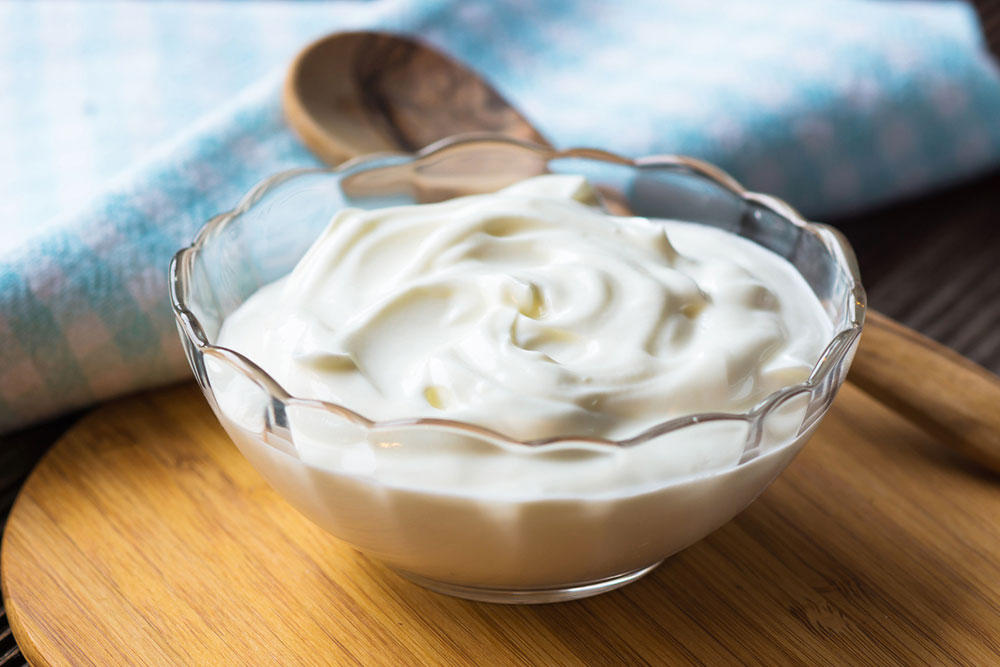
12 heart-healthy breakfast ideas
Maintaining heart health is essential for overall well-being, especially for those dealing with heart conditions. The importance of a heart-healthy breakfast cannot be overstated; a well-balanced meal in the morning not only provides the body with essential nutrients for an energy boost but also sets the tone for the day. So, here are some quick, delicious, and nutritious heart-friendly breakfast options one can choose to maintain and improve cardiovascular health:
1. Oatmeal
Oatmeal is rich in soluble fiber and has low LDL cholesterol levels, making it an incredibly heart-healthy option. One can add plant-based milk or water to oats, letting them soak overnight to make them easier to digest. Adding sliced bananas or peach, a drizzle of honey, and a handful of almonds, walnuts, or powdered seed mix can give a boost of nutrition, texture, and flavor.
2. Greek yogurt
Greek yogurt is rich in calcium, potassium, and magnesium, which help regulate blood pressure. Being a good source of probiotics as well, it can help promote gut health, indirectly benefiting heart health. Greek yogurt has also been associated with reducing cholesterol and triglyceride levels, lowering the risk of heart conditions.
3. Whole-grain cereals
When selecting cereals, those with heart conditions can opt for whole grains with minimal added sugars. It is best to look for cereal with fiber-rich whole grains and fortified vitamins, such as vitamin B12, to help regulate blood sugar levels and keep one feeling full for long.
4. Fresh fruit salad
A vibrant mix of fresh fruits like berries, citrus, and melon is not only visually appealing but also nutritious. Packed with vitamins, minerals, and antioxidants, fresh fruits can support overall health and protect against heart disease.
5. Chia pudding
Chia seeds are rich in omega-3 fatty acids, fiber, and protein. When soaked in almond milk or Greek yogurt overnight, they swell up to create a creamy pudding-like consistency. Adding a sprinkle of cinnamon and some fresh berries can give them additional flavor.
6. Avocado toast
Avocado is a heart-healthy fat that contains monounsaturated fats, which can help lower bad cholesterol. One can mash avocado onto whole-grain toasted bread and top the meal with chia seeds for an additional dose of omega-3s.
7. Smoothie bowl
Smoothie bowls often consist of fruits like berries, bananas, and mangoes, which are high in fiber, yogurt, and a variety of toppings. Here, fiber helps lower cholesterol levels and keeps arteries clear, reducing the risk of heart disease. When prepared with low-fat yogurt or plant-based milk like soy or almond, smoothie bowls can be low in saturated fats. Adding toppings like chia seeds, flaxseeds, or walnuts to a smoothie bowl can provide a dose of heart-healthy omega-3 fatty acids, which are known to reduce inflammation and support overall heart health. Here, protein powder can also give an additional nutritional boost. This breakfast option is highly customizable, allowing one to tailor it to one’s specific dietary needs.
8. Vegetable smoothies
One can make a variety of breakfast smoothies by choosing a variety of vegetable combinations like:
– Tomato and celery
– Carrots, ginger, and apple, along with chia seeds
– Carrots, beetroot, and apple
– Spinach, coconut water, and fruits like mango or orange
One can also add toppings of choice, such as seeds or nuts, and add honey as a natural sweetener.
9. Quinoa porridge
Quinoa is a great protein source and is also rich in fiber, so it can be a great breakfast option for heart patients. One can cook it with a choice of plant-based milk and top it with fresh berries for a warm, satisfying breakfast.
10. Whole-grain breakfast burrito
A whole-grain tortilla filled with scrambled eggs, beans of choice, sliced avocado, and salsa is not only a delicious meal but a balanced source of protein, fiber, and flavor. Those seeking variety can replace some ingredients or add tofu, mushrooms, spinach, sweet potatoes, bell peppers, or onions to the burrito based on their personal preferences and nutritional needs.
11. Bean breakfast bowl
Packed with fiber, plant-based protein, and essential nutrients, beans provide a satisfying and nutritious start to the day. Whether it’s black beans, kidney beans, or chickpeas, incorporating beans into a morning bowl with sautéed vegetables and a poached egg can add flavor and texture. One can also add leftover brown rice to the mixture for a filling heart-healthy meal.
12. Tofu scramble
For those who prefer plant-based meals, tofu can be a satisfying protein source. One can sauté tofu with a mix of vegetables and spices for a savory breakfast scramble.
It is important to consult a healthcare provider before incorporating any new food items into daily meals to ensure that the food choices align with specific health needs, restrictions, and goals.
Foods to avoid
Those with heart-related issues should be mindful of certain foods when considering breakfast options. Here are some foods to avoid:
Processed meats and foods: Bacon, sausages, and processed deli meats are often rich in saturated fats, sodium, and additives. These can contribute to heart issues and should be consumed sparingly.
Sugary food: Many breakfast cereals, pancakes, pastries like croissants, Danish pastries, and sweet rolls are packed with added sugars. Excessive sugar intake has negative effects on metabolism and appetite regulation, and it also increases the risk of heart disease. Additionally, syrups rich in sugar can turn a heart-healthy breakfast into an unhealthy meal. For instance, maple syrup and pancake syrup can contain a lot of sugar, so they should be replaced with natural sweeteners like honey or fruit.
Fried foods: Fried snacks, such as hash browns, fries, and burgers, are typically high in unhealthy fats and can contribute to elevated cholesterol levels.
Excessive caffeine: While moderate caffeine intake is generally safe, excessive caffeine can lead to elevated blood pressure and heart palpitations.
It is important to be mindful of overall food intake to maintain heart health.


